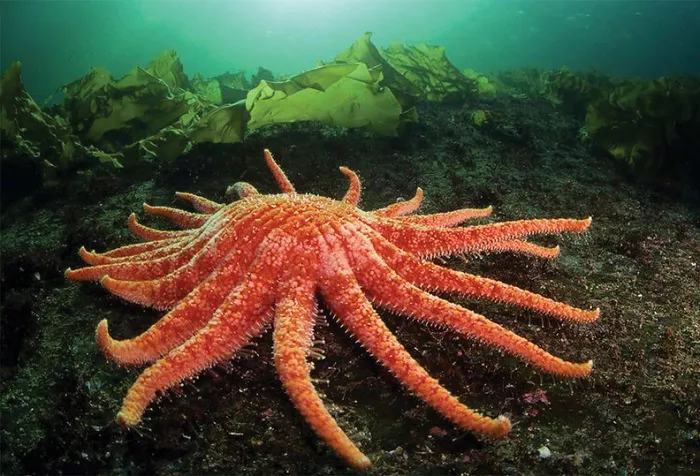Scientists at the California Academy of Sciences have achieved a significant milestone in the conservation of the critically endangered sunflower sea star (Pycnopodia helianthoides), marking a hopeful turn in efforts to restore marine ecosystems along the U.S. West Coast.
Once abundant from Alaska to Baja California, the sunflower sea star is among the largest sea stars globally, with up to 24 arms and a mass comparable to a small dog. However, a devastating outbreak of sea star wasting disease, likely exacerbated by marine heatwaves linked to climate change, led to the loss of approximately 5.75 billion individuals—about 94% of the global population—by 2013. In California, the population plummeted by nearly 99%, prompting the International Union for Conservation of Nature to classify the species as critically endangered in 2020.
The decline of sunflower sea stars has had cascading effects on marine ecosystems. As voracious predators of purple sea urchins, their absence has allowed urchin populations to explode, leading to the overgrazing of kelp forests. These kelp forests are vital habitats that support a diverse array of marine life and play a crucial role in carbon sequestration.
In response, researchers have initiated captive breeding programs to bolster sunflower sea star populations. At the California Academy of Sciences, scientists have successfully induced spawning in these sea stars, producing viable larvae. These larvae are then nurtured in controlled environments to ensure their survival and growth.
This breakthrough is part of a broader, multi-institutional effort to restore the species and, by extension, the health of kelp forest ecosystems. The successful spawning and rearing of sunflower sea stars represent a promising step toward reversing the ecological damage caused by their near-extinction.
While challenges remain, including the unpredictable nature of disease outbreaks and environmental changes, the recent successes in sunflower sea star conservation offer renewed hope for the resilience of marine ecosystems along the West Coast.


